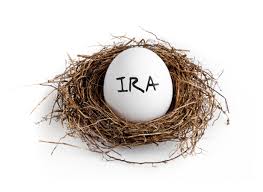 ncreases on an IRS-set range.
ncreases on an IRS-set range. Contributions to a Roth IRA are not tax deductible like with a Traditional IRA. Money earned in a Roth IRA can be withdrawn income-tax-free on a few conditions: you must have had the account for at least five years, if you're at least 59½, death, disability or a qualified first time home purchase.
5 Reasons converting to a Roth IRA is not the best option
1. Lower tax bracket after retirement
· After retiring many people drop to a lower tax bracket. It is suggested if your tax rate will drop 10% or more it is not a good option to convert right now.
· Also if you plan to move to a state with a lower tax rate it is better to wait.
2. Nearing retirement and will spend your IRA
· If you will be in the same tax bracket after retirement the question to ask is when will you need to use the money in your IRA. One of the benefits of a Roth IRA is you don’t need to take required minimum distributions starting at age 70 ½. If you are near retirement and will be using money soon from your IRA it dose not make sense to convert to a Roth IRA.
3. Don’t have money to pay conversion taxes
· If you have to use money from your IRA to pay the conversion taxes it may not be ideal to convert, its best to pay the tax from other sources.
4. You plan to leave a substantial amount to charity
· The most tax-effective way to leave money to charity is through a traditional IRA. Money given to charities from traditional IRA’s is typically not taxed.
5. You need asset protection
· If you are in a position where you might be sued, such as a physician or retired engineer it is best to consult a lawyer before making the move to convert to a Roth IRA.
Check back next week for the top reasons converting to a Roth IRA will be the best move for you.



